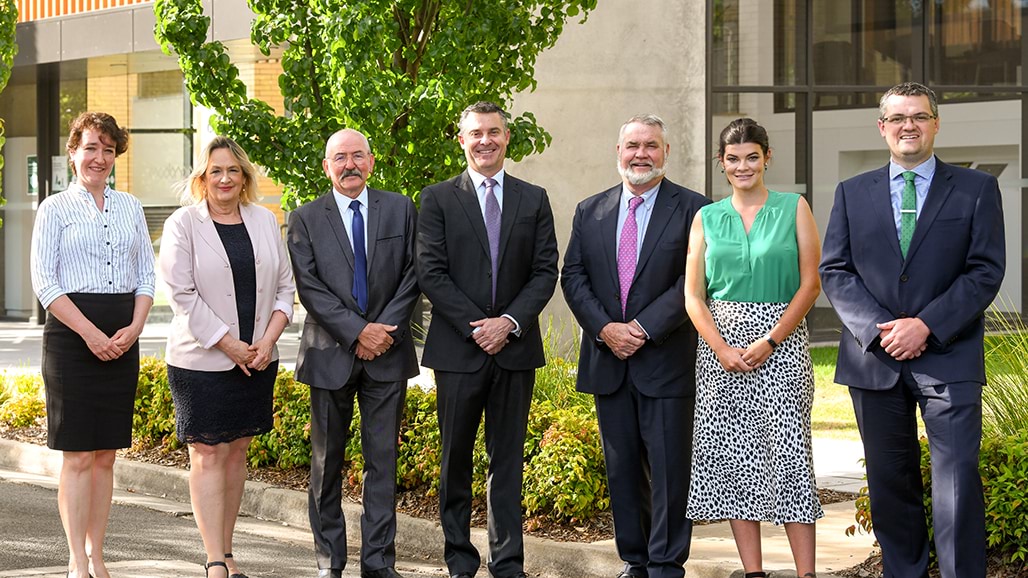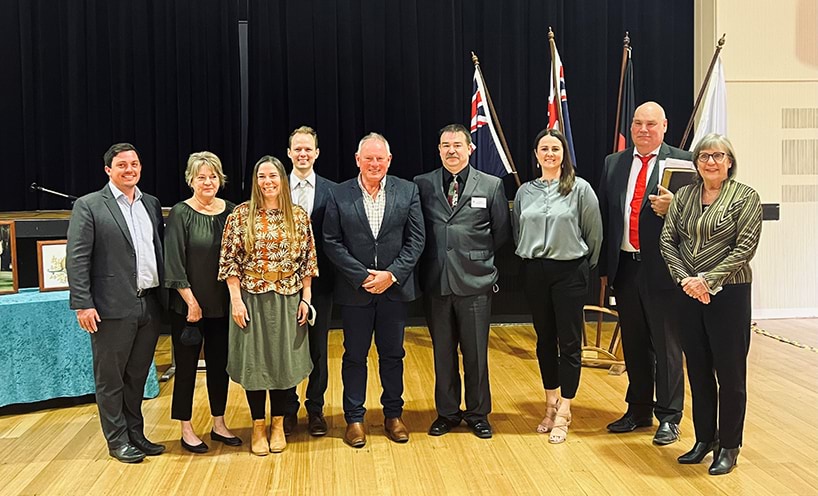- Date:
- 18 Nov 2021
Welcome to the spring edition of our integrity matters newsletter.
The Inspectorate recently released a report on councillors’ personal interests declarations, which revealed concerning levels of noncompliance. We made recommendations to improve compliance – and transparency in relation to councillors’ declaration of their personal interests.
Like most Victorians, I am delighted to see that Victoria is slowly reopening and returning to a new kind of normal where we will live with COVID-19. However, the reopening has brought challenges for employers, including councils. Public health rules are still in place to protect our hospitals, health workers and the general population meaning we must be flexible and adaptive as we learn to adjust.
After almost two years in administration, South Gippsland Council went to the polls in a postal vote in October and the results were declared in early November. We have more information on the results in this issue.
Complainants to the Inspectorate are often frustrated when we say we cannot investigate something because it is outside our jurisdiction. Our responsibilities and the limits to our powers are set out in the Local Government Act 2020. In this issue we explain what we can and can’t investigate. We have included case studies of actual complaints to give you a better understanding of our work.
And finally, we presented to councillors and the leadership team of a regional council recently about our role and how we can help educate and provide advice to councils. We are happy to speak to other councils and encourage you to get in touch if there is something we can help you with.
I look forward to life slowly returning to normal and the opportunity to meet more of you in person as we continue to open up.
Michael Stefanovic AM
Chief Municipal Inspector
Better education and oversight needed to improve councillor compliance
Our major review of personal interests returns in Victorian councils found 332 out of 650 councillors did not complete their returns in compliance with the Local Government Act.
The project looked at 4,600 councillor returns between October 2016 and February 2020. It involved a high-level review of personal interests returns from 61 councils and a detailed review from 17 councils.
Mr Stefanovic said: “The Inspectorate and other integrity agencies have identified incomplete and inadequate personal interest disclosures are a historical and ongoing issue affecting the local government sector.” “Compliance needs to be improved through better oversight and enforcement with a view to raising the level of compliance and public trust in their local representatives.”
We found:
- half of the 650 councillors had failed to submit accurate records of their personal interests
- two out of every five councillors failed to disclose interests in one or more of their returns – or failed to submit a return at all
- councillors failed to disclose interests in trusts, property and office positions held
- councillors routinely declared interests inconsistently.
During the review, we surveyed selected councillors and council officers and were told that improved guidance was needed, in simple language, and including relevant examples. There was also a clear message that more education and oversight was needed to improve compliance.
The personal interests returns scheme was amended with the introduction of the Local Government Act 2020. In August 2021, we assessed compliance with the new requirement for councils to publish a summary of all personal interests returns. We also reviewed the websites of all 79 councils and found that three councils did not have a summary published and a further 13 had not published the summary of the biannual personal interest returns of March 2021.
Read the full report, Personal interests returns: Encouraging disclosure and increasing transparency.
How we assess complaints
As discussed in our Winter 2021 newsletter, we receive many complaints that are not in our jurisdiction and we cannot investigate. Like all public bodies, our jurisdiction is clearly set out in legislation and there are strict limits on our powers. For the Inspectorate, our powers are set out in the Local Government Act and there are strict limits on the matters we can and can’t investigate.
We can investigate breaches and offences under the Act involving councillors, senior council employees of anyone subject to the conflict-of-interest provisions of the Act.
Other integrity agencies may also investigate council matters. For example, the Victorian Ombudsman can investigate council services and the Independent Broad-based Anti-corruption can investigate serious misconduct and corruption.
When we receive a complaint, we first assess it to see if it falls inside our jurisdiction. This means, we look at the complaint to see if it is something we can investigate under the Act.
The main areas we investigate are:
- misuse of position
- dealing inappropriately with a conflict of interest
- disclosing confidential information
- committing electoral offences.
Once we assess a complaint, we will tell you if your complaint is outside our jurisdiction and we are not legally allowed to investigate it. Often, we receive complaints about matters that other agencies can investigate. If this is the case, then we will give the details of other agencies that may be able to investigate your complaint.
Case study: Complaint we investigated
We received a complaint that a local developer had commissioned an artist to paint a portrait of a councillor. The allegation was that the portrait was a gift to the councillor and was presented to them at a time when the developer had made an application for a major development. The gift was never recorded on the gift register by the councillor.
We investigated and found the developer did commission the artist and the written agreement between the two parties stated that the portrait of the councillor would be paid for by the developer but given to the council. The developer made a planning application to council in late 2019.
We interviewed the councillor under caution, who stated that they did not accept the portrait directly. The mayor confirmed this and told us the portrait was a gift to council and was taken to the local history centre. The developer also denied that the portrait was a gift to the councillor.
We accepted that the donation of the portrait was made to the council and therefore it was not mandatory that the gift register was updated. However, a donation by a philanthropist to council was not covered by the Act or by any council policy. We recommended that council’s policies be updated to reflect that omission.
We found there was no breach of the Act.
Case studies: Complaints we could not investigate
We received a complaint from a resident who was part for a body corporate. The resident stated that their council had charged a waste bin fee but had not provided bins for two years – despite being asked to do so.
We are not able to investigate complaints about the delivery of council services. We informed the complainant that the issue should be taken up with council or the Victorian Ombudsman if the council did not resolve the issue satisfactorily.
We received a complaint from a resident stating that councillors had misused their power when they made a “ridiculous decision” which was a “waste of ratepayers money”. The council decision was in relation to a feasibility study.
We are not able to investigate complaints about council decisions as they fall outside our jurisdiction. We informed the complainant that they could lodge a complaint with the Victorian Ombudsman.
Invitation to speak at local government events
Councils and other local government bodies are welcome to invite us to speak to them or speak at their events. The Inspectorate is happy to speak to councils and others in the sector about our work. Our presentation can also help councillors and senior staff understand more about good governance, local government laws and our role as an integrity agency.
Each year, we visit a number of councils to inform them about our role in monitoring local government and ensuring the integrity of elections. These presentations, which can be held in person or online, are useful to understand the complexity of roles and responsibilities in the local government and integrity sectors.
This month we presented to councillors and executive staff at the City of Wodonga to explain what we can investigate (possible offences under the Local Government Act) and what we can’t (breaches of the council’s policies).
City of Wodonga Chief Executive Officer Mark Dixon said: “Nearly 12 months into their term, it was a great opportunity to remind everyone of the roles and responsibilities of a councillor versus the roles of the CEO. We discussed how to get the best out of our briefings (and meetings) and importantly how to hold each other to account in living by the Councillor code of conduct.
“We finished with a free-flowing Q&A. I thoroughly recommend such a frank and open information exchange to all council teams.”
Meanwhile, the Victorian Local Governance Association (VLGA) has had the CMI as a presenter to a number of professional development forums for mayors, councillors and officers, both online and face-to-face.
“Mr Stefanovic brings a unique combination including practical examples, ‘red flag’ signs of underlying problems, and prevention strategies to build understanding around governance and conduct obligations under local government legislation in Victoria,” VLGA Chief Executive Officer Kathryn Arndt said.
Mr Stefanovic added: “I would encourage councils to reach out if there are any briefings or events that they would like the Inspectorate to attend. We can give a general briefing on our work or we can brief on a specific topic, such as governance or conflicts of interest.”
Councils and stakeholder groups wishing to arrange a presentation by the Inspectorate can contact inspectorate@lgi.vic.gov.au.
New councillors for South Gippsland
The results of the South Gippsland council election were announced in early November.
South Gippsland council went to the polls with a by-election in October - more than two years after the council was dismissed. South Gippsland Shire Council was dismissed by an Act of Parliament in June 2019 after the resignation of six councillors between September 2018 and the dismissal.
The election results were released on Tuesday 9 November and three candidates were elected in each of the three wards. None of the successful candidates had stood for election in 2016 and only one had previous experience as a councillor. However, two councillors who were elected in 2016 recontested their seats but were not successful in the 2021 poll.
In Coastal-Promontory Ward, the successful candidates were Sara Gilligan, Scott Rae and Mohya Davies. Mohya Davies has previously served as a councillor when she was elected to represent the ward in 2008 and 2012.
In Strzelecki Ward, the successful candidates were Jenni Keerie, Michael Patrick Felton and Nathan Hersey. Andrew McEwen, who was elected in the ward in 2016 and recontested the seat, was not successful in the October postal poll.
In Tarwin Valley Ward, the successful candidates were John Schelling, Clare Williams and Adrian Darakai. Don Hill, who was elected in the ward in 2016 and recontested the seat, was not successful in the latest election.
Meanwhile, David Andrews has been elected as a councillor for Lake Nagambie Ward in Strathbogie Shire Council following a countback of votes on 15 September. The Victorian Electoral Commission conducted the countback following the resignation of Councillor Meanie Likos.



